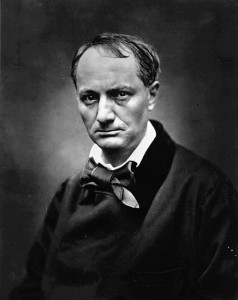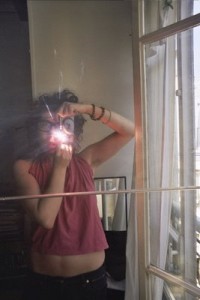Ariana Reines Week, Part 3: The Hot Tub / Glory Hole Part 2
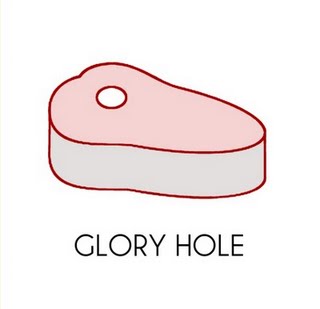

Since the reaction to yesterday’s Hoy-Leon extravaganza, I figured the best–perhaps the only–thing we could do is double down. Here, then, are some more selections from The Hot Tub (Leon) and Glory Hole (Hoy), the new split poetry collection out from Mal-o-Mar Editions.
THE UNIVERSE IS A PIECE OF SOMETHING EVEN WORSE (Hoy)
I feel at home when I forget
life. I phone it in because
this shit is real. My world
is made of systems and worlds. I give up
nothing and make no mistakes.
I try to be awesome because I can.
Ariana Reines Week, Part 2: The Hot Tub / Glory Hole Part 1
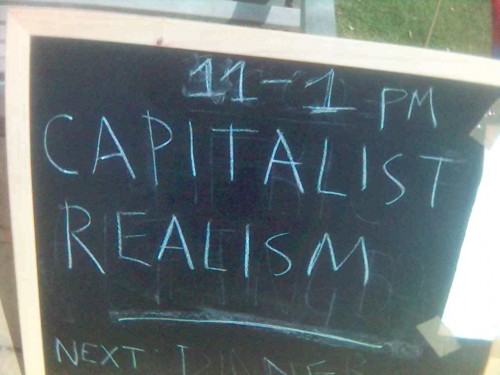
Did you follow that headline? New from Mal-o-Mar Editions is a poetry split– Jon Leon’s The Hot Tub and Dan Hoy’s Glory Hole, together in one spine. You might remember Jon from Hit Wave, the wonderful chapbook he did for Kitchen Press, and Dan Hoy is of course the co-editor of Soft Targets, the journal that did one (two?) legendary issue(s) before apparently winking out of existence, though it, like Jesus, may yet one day return. Anyway, to celebrate the Leon-Hoy Pact (it’s like the Glass-Steagall act, kind of) I thought it would be nice to pair some of their poems together, in little flights. We were doing this the other night at my house–me and some friends, getting slowly loaded on asscheap bourbon and reading these proudly defiant poems of obscene opulence and opulent obscenity aloud to one another. Fun starts after you click the button.
Matt Bell, EXPLAIN YOURSELF!
 For sheer wtf, you gotta read Matt Bell’s story “Cain, Caleb, Cameron,” recently in Wigleaf. It’s like one man’s personal Beowulf. (I’m not sure that holds up, but it’s funny, and if an enterprising composition student wants to put it in a paper, alongside a list of all the kennings in the piece, he can site this post as substantive material.)
For sheer wtf, you gotta read Matt Bell’s story “Cain, Caleb, Cameron,” recently in Wigleaf. It’s like one man’s personal Beowulf. (I’m not sure that holds up, but it’s funny, and if an enterprising composition student wants to put it in a paper, alongside a list of all the kennings in the piece, he can site this post as substantive material.)
Here, I’ve excerpted a good grossness, for the click-weary:
. . . First there was the push, push, then the blood, then my mistake-toothed firstborn howling in the nurse’s arms: chubby, too chubby, too covered in mother’s gore.
And then my wife continuing to push. And then the doctor’s begging her to stop. . . .
Anyway, uh, I met Matt Bell’s wife briefly in Ann Arbor. So for this installment, I’m asking her to EXPLAIN YOUR HUSBAND! [applause]
Like Prions: An Interview with Terese Svoboda by Shya Scanlon
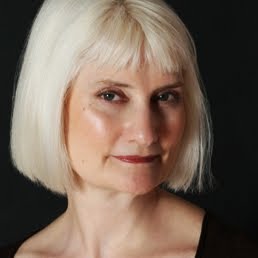 Terese Svoboda is one of the best writers of her generation. HTMLGIANT readers especially will notice at once the tell-tale signs of the pee-free classroom commanded by one Gordon Lish, but her work operates on a global level as impressively as it does syntactically. It has the concision and dark, domestic play of Christine Schutt and the scope and moral outrage of Don DeLillo. But of course she is an author all her own—as much a product of her work in The Sudan as she is of her time in the classroom—and her wry, canny, and cosmopolitan sensibility is tempered only by a rooty ease and kindness—surely a farmer’s inheritance. At home in a multitude of different forms, she’s received prizes both for her fiction and poetry, taught all over the place, produced video work for PBS and MoMA—the list goes on. She’s just released a book of poetry heralded by Thomas Lux as “goddamn terrific,” has a reissue of her third book of prose coming out this month, and two (TWO!) novels being published in 2010 and 2011, one comprised solely of pirate dialogue. If you haven’t read her yet, you’re lucky: it’s superb stuff, and there’s a lot of it out there to discover. If you’re already familiar with her work, it’s always worth revisiting. I asked her a bunch of questions about her craft, her practice, and her politics. Fan Club line forms here. — Shya Scanlon
Terese Svoboda is one of the best writers of her generation. HTMLGIANT readers especially will notice at once the tell-tale signs of the pee-free classroom commanded by one Gordon Lish, but her work operates on a global level as impressively as it does syntactically. It has the concision and dark, domestic play of Christine Schutt and the scope and moral outrage of Don DeLillo. But of course she is an author all her own—as much a product of her work in The Sudan as she is of her time in the classroom—and her wry, canny, and cosmopolitan sensibility is tempered only by a rooty ease and kindness—surely a farmer’s inheritance. At home in a multitude of different forms, she’s received prizes both for her fiction and poetry, taught all over the place, produced video work for PBS and MoMA—the list goes on. She’s just released a book of poetry heralded by Thomas Lux as “goddamn terrific,” has a reissue of her third book of prose coming out this month, and two (TWO!) novels being published in 2010 and 2011, one comprised solely of pirate dialogue. If you haven’t read her yet, you’re lucky: it’s superb stuff, and there’s a lot of it out there to discover. If you’re already familiar with her work, it’s always worth revisiting. I asked her a bunch of questions about her craft, her practice, and her politics. Fan Club line forms here. — Shya Scanlon
Critics on Criticism: Oscar Wilde
 From “The Critic as Artist”:
From “The Critic as Artist”:
To the critic the work of art is simply a suggestion for a new work of his own, that need not bear any obvious resemblance to the thing it criticizes. The one characteristic of a beautiful form is that one can put into it whatever one wishes, and see in it whatever one chooses to see; and the Beauty, that gives to creation its universal and aesthetic element, makes the critic a creator in his turn, and whispers of a thousand different things which were not present in the mind of him who carved the statue or painted the panel or graved the gem.
Heather Christle Week (5): Pale Lemon Square
If you don’t by now know you should have bought or be buying soon Heather Christle’s The Difficult Farm, there’s just nothing else I can say to you. You gone.
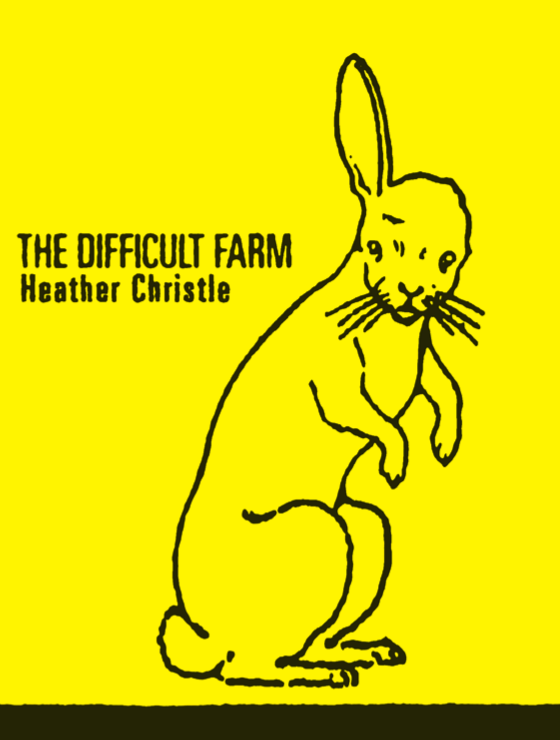
Happy weekend, here’s one bit of bright light for some road:
PALE LEMON SQUARE
When they say nobody rides horses anymore
what they mean is: look, the ineffable sadness
has returned, and while every mindless plant
in town is blooming, an accidental family
reunion is also growing, and my neighbors’
houses are filling up with maiden aunts.
For a time, trading was all the rage, and now
I’d like to try it again. You give me
your native handbag collection, and I will give you
my lilac soap. Later we can get carried away
and perhaps even employ a tombola. I will not,
I cannot remain in charge of prizes. Please,
you must look quickly at our fellow citizens
and tell me, do they not seem unwell? I feel so
concerned. I feel like I’ve been studying
to become a doctor forever and now, faced
with a real-world pandemic, I’m full
of unmitigated lust for business—as though
I were sitting in a high school classroom
watching the morning’s snow foster impending
cancellations and all the attendant policies. Soon,
if not at once, the library and gymnasium will be
redubbed infirmaries, and you and I will drift
among the cots like swans in ever-wider grids.
Chris Higgs interviews Kristina Born for The Faster Times, about her new book One Hour of Television. [BORN: I wanted it to be suffocating. Gertrude Stein thought (mostly in reference to her plays, I believe) that you can’t write emotional arcs, because if the reader is not in the exact right emotional state at the right stage in the arc, you’ll lose him. Her solution was to put everything on the page immediately, like a painting, and allow the reader to pick out what resonated with him at the time. I’m interested in a different solution: a complete monopoly of mood. I want to try to write in a way where the reader can pick up the book, read any sentence, and be immediately crunched down into the mood he should be in.]
The Failure Six by Shane Jones
 This second novel by Shane Jones is out now from Fugue State Press and getting excellent and interesting reviews. I like Darby Larson’s thoughts on the book here.
This second novel by Shane Jones is out now from Fugue State Press and getting excellent and interesting reviews. I like Darby Larson’s thoughts on the book here.
Shane is doing a contest on his blog with a giveaway for the book.
In The Failure Six, a group of messengers, who work for a vast bureaucracy, all struggle with the same task – to retell the life story of a woman named Foe who seems to have lost her memory. The irrepressible emotions of the messengers – and Foe’s clear need to be left alone in her amnesia – make for a strange, unaccountable, untellable story.
In this town, speech is accomplished through stacks of paper so tall they touch the sky…the floors of a teahouse are built in seconds…and a mysterious character named DH threatens the town with bombs and his “Deliverer” who wields the world’s most expensive revolvers. The Failure Six is a mystery grounded in Kafka, Gogol, and human dreams.
I read this book in draft and am excited to read it in full and final form. Shane’s got the magic.

